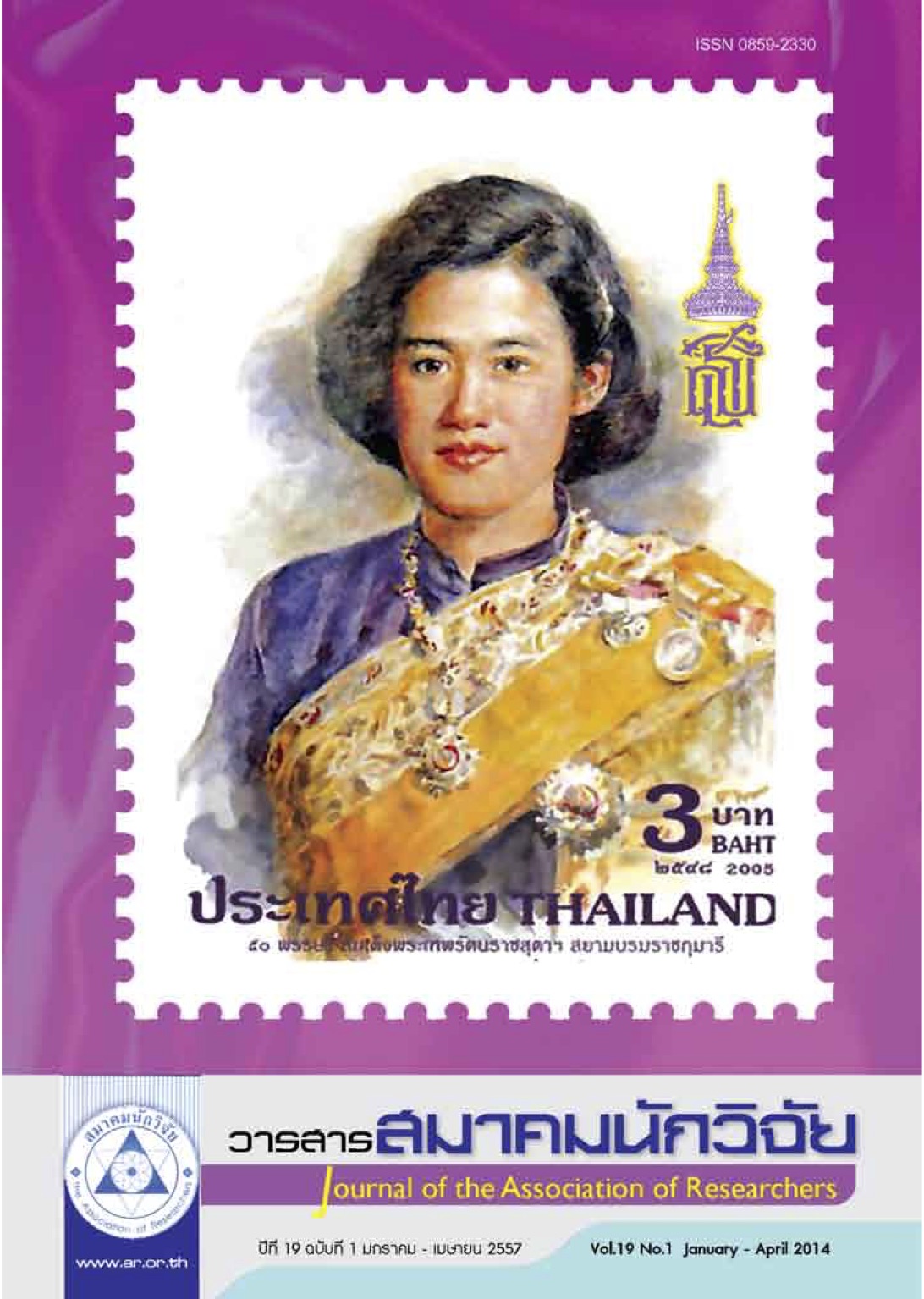PROCESS AND RESULTS OF BUDDHISM HOLISTIC WELL-BEING PROMOTION.
Main Article Content
Abstract
Research on the Process and Effects of Buddhist Holistic Well-Being Promotion.The research objective was to study the process and Effects of Buddhist Holistic well-being promotion. The research questions set forth were how to promote Buddhist Holistic well-being and how the Process and Effects of Buddhist Holistic Well-Being Promotion effect to physical health, mind, society and spirit. The qualitative research was applied by utilizing selected methods from the narrative of the experiences of the story of Buddha. The Data was collected by conducting unstructured interviews from the course participated at Sisa Asoke community between year 2007 to 2012. Data were collected by unstructured interviews. Synthesis data using descriptive analysis in Srisa Asoke detoxification course area. The results are summarized below.
1) The Process of Buddhist Holistic Well-Being Promotion, usually conduct for five days in order to learning theory and practicing of Buddhist holistic well-being by integrated with local wisdom acknowledgement and scientific knowledge. The course also emphasizing on how to be self-reliance and then be the anchors person. Dharma was the important factor on the Process of Buddhist Holistic Well-Being Promotion which made the spirit to release the desires; greed, anger and passion decreased respectively which known by their own. The result was “merit” came out by “distribution” which sacrificed to society.
2) The Process of Buddhist Holistic Well-Being Promotion could bring the people better health, good heart, sacrifice, charitable and brighten emotion resulted the power of helping others who were suffering to be healthy as well. Help to improve the social well-being as a whole of physical body, mental, society and spirit which relationships reinforced each other.
Article Details
บทความที่ปรากฏในวารสารนี้ เป็นความรับผิดชอบของผู้เขียน ซึ่งสมาคมนักวิจัยไม่จำเป็นต้องเห็นด้วยเสมอไป การนำเสนอผลงานวิจัยและบทความในวารสารนี้ไปเผยแพร่สามารถกระทำได้ โดยระบุแหล่งอ้างอิงจาก "วารสารสมาคมนักวิจัย"
References
ประเวศ วะสี.(2550). สุขภาพองค์รวม. ค้นเมื่อ1 ตุลาคม 2552, จาก http://www.siamtravellink.com/chaya/handbook/HolisticHealth
พระไพศาล วิสาโล.(2550).สุขภาพองค์รวมกับสุขภาพสังคม. เอกสารประกอบการประชุมวิชาการ ประจำปีการ พัฒนาและรับรองคุณภาพโรงพยาบาลครั้งที่ 8 วันที่ 13-16 มีนาคม 2550 ณ ศนูย์ การประชุม IMPACT เมืองทองธานี.
ชื่นฤทัย กาญจนะจิตรา. (2554, มิถุนายน 12).เผยคนไทยอายุยืนขึ้น ชายเฉลี่ย 69 หญิง 76 ตายด้วยมะเร็ง-อุบัติเหตุสูง. มติชนออนไลน์.
วิชิต เปานิล. (2546). พุทธกระบวนทัศน์เพื่อสุขภาพและการเยียวยาในสังคมไทย. กรุงเทพฯ : สถาบันวิจัยระบบสาธารณสุข.
สมณะโพธิรักษ์. (2531). สัมมาสิกขา. กรุงเทพฯ: โรงพิมพ์มูลนิธิธรรมสันติ.
Adam, S.(1978). Powers of the Mind. New York City: Arrangement with Random House.
Capra, F. (1985). The turning point : Science, society and the rising culture. London : Flamingo an imprint of Harper Collins.
Kuhn, T. S. (1970). The structure of scientific revolution.(2nd edition, enlarged) Chicago: The University of Chicago Press.
McEvoy, L., & Duffy, A. (2008). Holistic practice – A concept analysis. Nurse London : Flamingo An Imprint of Harper Collins.
World Health Organization.(1986, November).First Ottawa Charter for Health Promotion. The first International Conference on Health Promotion, meeting in Ottawa this 21st day of November 1986.


